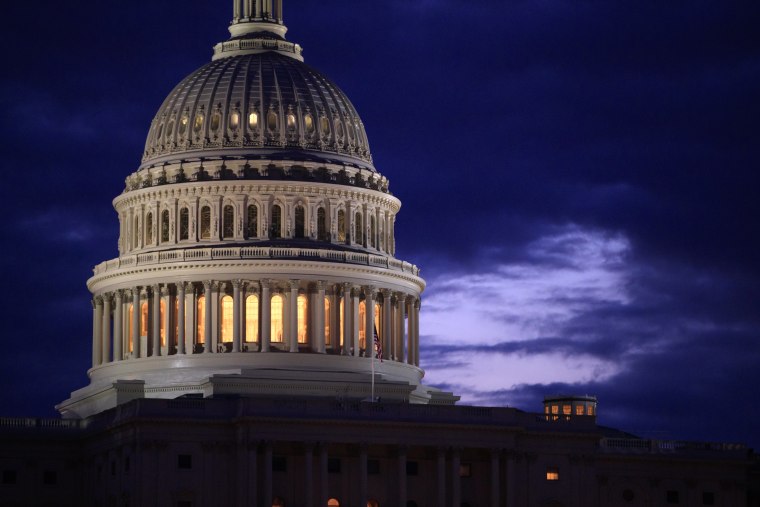Democrats already skeptical of the impartiality of the Department of Justice's investigation into ties between Russia and President Donald Trump's campaign increased their calls for an independent probe following the president's surprise firing of FBI Director James Comey on Tuesday.
While attention now turns to who will oversee the investigation going forward at the FBI, even some Republicans have joined in the calls for independent oversight of the Russia probe.
Here are three avenues Democrats are proposing for an independent investigation:
The Justice Department Can Appoint a Special Counsel
Acting Attorney General Rod Rosenstein could appoint a special counsel to oversee the investigation at any time. Rosenstein is leading the Russia probe because Attorney General Jeff Sessions recused himself over his role as a surrogate for Trump’s campaign.
Senate Minority Leader Chuck Schumer said Rosenstein assured him ahead of his confirmation that he would appoint a special counsel "if one is required."
“Mr. Rosenstein has the authority to appoint a special prosecutor right now. He needs no Congressional authorization,” Schumer said on the Senate floor on Wednesday.
Republican Sen. Lindsey Graham, however, dismissed the need for a special prosecutor because it is "counterintelligence" investigation. A prosecutor would only be needed in a criminal investigation, Graham said.
Congress Can Pass Legislation Approving a Special Counsel
If Rosenstein fails to appoint an outside prosecutor, Democratic Sen. Richard Blumenthal said he is prepared to introduce legislation that would give Congress the authority to name one.
“There is a second way, and that was the procedure that was established right after Watergate,” Blumenthal said Wednesday on MSNBC’s “Morning Joe.”
The senator said the bill would resemble a previously lapsed law that required the attorney general to petition a three-judge panel to choose a prosecutor. That person could operate independently without the threat of oversight from the president.
The Watergate-era law lapsed in 1999 after the deeply partisan battle over the investigation into President Bill Clinton and Monica Lewinsky.
Such a law would require bipartisan support to get through Congress and Trump’s signature or two-thirds of Congress voting to override a veto, a long-shot in the current GOP-controlled congress.
Congress Can Form a Special Committee
Other members of Congress have voiced support for a special congressional committee to investigate the Russian intrusions into the election and links to the Trump campaign. This could come in addition to the ongoing House and Senate investigations into the probe.
“I have long called for a special congressional committee to investigate Russia's interference in the 2016 election,” Republican Sen. John McCain said following the Comey news. “The president's decision to remove the FBI Director only confirms the need and the urgency of such a committee.”
Republican Rep. Justin Amash tweeted that his staff was also looking into how to establish an independent commission.
Calls to establish an independent commission picked up in March after GOP Rep. Devin Nunes, the chair of the House Intelligence Committee, visited the White House to view documents he said could help prove Trump’s allegation that President Barack Obama surveilled Trump Tower leading up to the election.
A Congressional committee would have subpoena power and would issue a report. It would be the Department of Justice that decides if criminal charges are brought.

